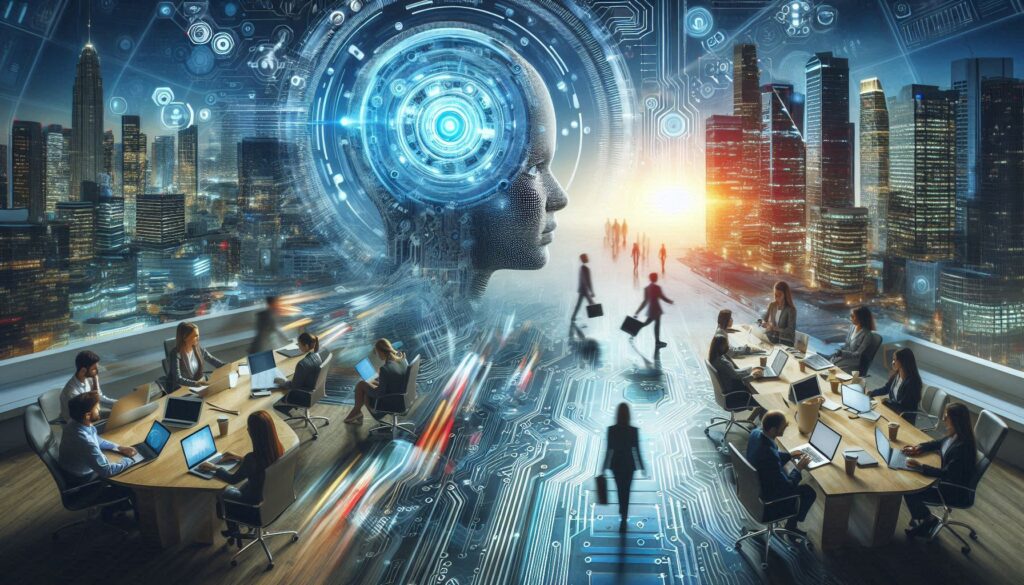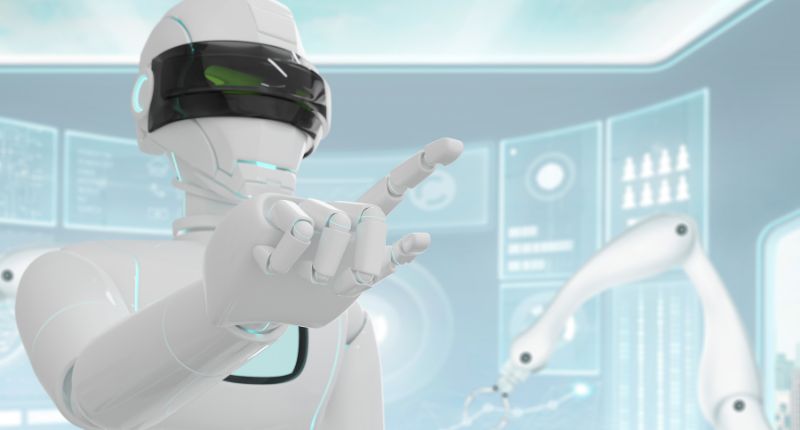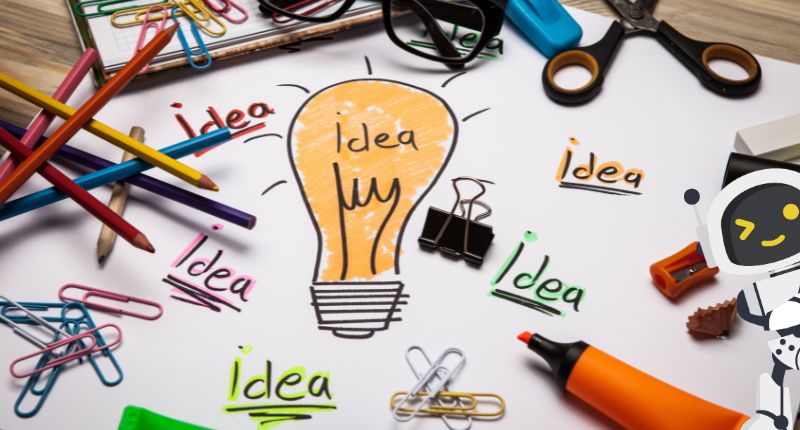Imagine waking up in 2034. Your AI-powered home adjusts the lighting to match your circadian rhythm, brews coffee tailored to your taste preferences, and summarizes global news based on your interests—all before you step out of bed. This isn’t science fiction; it’s a glimpse into a future shaped by artificial intelligence. Over the next decade, AI will evolve from a disruptive technology into an invisible, indispensable force woven into every aspect of life. From curing diseases to combating climate change, the possibilities are staggering—but so are the challenges. Let’s explore what the next ten years may hold for AI and humanity.
1. AI in Healthcare: From Diagnosis to Cure
Healthcare stands to undergo its most radical transformation since the discovery of antibiotics. AI is already making waves in medical imaging and diagnostics, but the next decade will see it tackle even bigger challenges:
- Personalized Medicine: AI will analyze genetic data, lifestyle factors, and real-time biometrics to create hyper-personalized treatment plans. Imagine cancer therapies tailored to your DNA or mental health interventions optimized for your brain chemistry.
- Drug Discovery Revolution: Traditional drug development takes 10–15 years and costs billions. AI models like AlphaFold (which predicts protein structures) will slash timelines by simulating molecular interactions and identifying promising compounds in months, not years.
- AI Surgeons and Robotic Care: Surgical robots, guided by AI, will perform complex procedures with sub-millimeter precision. Post-op recovery will be monitored by AI systems that predict complications before symptoms arise.
However, ethical questions loom: Who’s responsible if an AI misdiagnoses a patient? How do we ensure equitable access to these advancements?
2. Education: The Rise of Lifelong AI Tutors
The one-size-fits-all education model is crumbling. AI will democratize learning by providing adaptive, personalized experiences:
- Custom Curriculums: Platforms will assess individual strengths and weaknesses, adjusting content in real time. A student struggling with algebra might receive interactive 3D visualizations, while another excels with gamified challenges.
- Language Barriers Dissolve: Real-time translation tools will enable seamless cross-cultural collaboration. A child in Kenya could learn coding from a teacher in Sweden, with AI translating both speech and cultural context.
- Upskilling the Workforce: As automation disrupts jobs, AI tutors will offer micro-courses to help workers pivot careers. A factory worker displaced by robots could train as a solar technician through AI-guided modules.
Critics warn of over-reliance on technology, but the goal isn’t to replace teachers—it’s to empower them with tools that humanize education.
3. Climate Change: AI as Earth’s Guardian
Climate scientists are drowning in data. AI will cut through the noise to drive actionable solutions:
- Optimized Energy Grids: Machine learning will balance renewable energy supply and demand, reducing waste. Smart grids could predict weather patterns to store excess solar energy or redirect wind power.
- Carbon Capture Innovations: AI will design new materials to absorb CO2 more efficiently and pinpoint ideal locations for carbon sequestration projects.
- Wildlife Conservation: Drones and AI cameras will monitor endangered species, track deforestation, and predict poaching activities.
The catch? Training AI models requires massive computing power, which itself consumes energy. Sustainable AI development will be critical.
4. Ethical AI: Navigating the Moral Maze
As AI infiltrates life-or-death decisions (like healthcare or criminal justice), ethics can’t be an afterthought:
- Bias Mitigation: Algorithms trained on biased data perpetuate inequality. The next decade will see rigorous auditing frameworks to detect and correct biases in hiring, lending, and policing.
- Transparency and Explainability: “Black box” AI systems will fall out of favor. Users will demand clarity: Why did a loan application get denied? How did an autonomous car decide to swerve?
- Global Governance: Nations will collaborate on AI regulations, similar to nuclear non-proliferation treaties. Expect heated debates over surveillance, deepfakes, and autonomous weapons.
Ethical AI isn’t just about avoiding harm—it’s about building systems that reflect humanity’s best values.
5. The Augmented Workforce: Humans and AI, Better Together
The “robots will steal our jobs” narrative misses the bigger picture. AI won’t replace humans—it’ll make us more capable:
- Supercharged Creativity: Writers will brainstorm with AI tools that suggest plot twists. Architects will use generative design to create eco-friendly buildings.
- Tedious Tasks, Automated: Say goodbye to repetitive paperwork. AI assistants will handle scheduling, data entry, and customer service queries, freeing humans for strategic work.
- New Jobs We Can’t Imagine Today: Just as the internet created roles like “social media manager,” AI will spawn careers in prompt engineering, AI ethics auditing, and virtual reality curation.
The key challenge? Reskilling. Governments and corporations must invest in lifelong learning to avoid leaving workers behind.
6. Entertainment: The AI Content Revolution
Netflix’s recommendation algorithm is just the start. AI will reshape how we create and consume entertainment:
- Personalized Movies: Imagine a film where the plot adapts to your preferences. Thriller fan? The protagonist takes a darker path. Prefer romance? A subplot blossoms.
- AI-Generated Music and Art: Artists will collaborate with AI to produce genre-blending music or digital art. Controversially, AI could replicate the styles of deceased icons—a new Prince album, anyone?
- Virtual Influencers: Hyper-realistic AI avatars (like Instagram’s Lil Miquela) will dominate marketing, starring in ads and interacting with fans 24/7.
But creativity without humanity risks feeling hollow. The most impactful content will blend AI efficiency with human soul.
7. Quantum Computing: Turbocharging AI’s Potential
Quantum computing, still in its infancy, will supercharge AI by solving problems classical computers can’t:
- Unbreakable Encryption: Quantum AI could crack current encryption methods, forcing a overhaul of cybersecurity—or create unhackable quantum encryption.
- Climate Modeling: Simulating complex systems (like global weather patterns) requires quantum-level processing. AI paired with quantum tech could finally deliver accurate long-term climate forecasts.
- Material Science Breakthroughs: Discovering room-temperature superconductors or ultra-efficient batteries will accelerate with quantum AI.
The synergy between these technologies could redefine entire industries—provided we navigate the security risks.
8. Space Exploration: AI as the Ultimate Astronaut
Mars colonies and deep-space missions will rely on AI to survive:
- Autonomous Rovers: Future Mars rovers will make real-time decisions without waiting for commands from Earth, navigating treacherous terrain and conducting experiments.
- Habitat Management: AI will monitor oxygen levels, radiation exposure, and equipment malfunctions in lunar or Martian bases, ensuring astronaut safety.
- Analyzing Cosmic Data: AI sifts through petabytes of telescope data to spot exoplanets or decode cosmic phenomena, accelerating our understanding of the universe.
Spacefaring AI must be robust enough to handle unknowns—a single software glitch could doom a mission millions of miles from home.
9. Government and Regulation: Walking the Tightrope
Governments face a dilemma: Over-regulate AI, and innovation stalls; under-regulate, and risks spiral. Key developments may include:
- AI Licensing: Companies deploying high-risk AI (e.g., facial recognition) may need certifications, similar to pharmaceutical trials.
- Global Standards: The EU’s AI Act and U.S. Executive Orders on AI are early steps. By 2034, we may see a unified global framework addressing transparency, privacy, and accountability.
- AI for Public Good: Governments will use AI to optimize traffic flow, allocate disaster relief, or predict disease outbreaks—but only if citizens trust the systems.
Balancing innovation and safety will require unprecedented public-private collaboration.
10. The Human-AI Partnership: Redefining What It Means to Be Human
The most profound shift won’t be technological—it’ll be cultural. As AI handles mundane tasks, humans will grapple with identity and purpose:
- The Creativity Economy: Jobs emphasizing empathy, creativity, and critical thinking will thrive. AI can’t replicate the human touch in caregiving, art, or leadership.
- Mental Health and Connection: AI chatbots may offer therapy, but human connection will remain irreplaceable. We’ll need to consciously nurture relationships in an AI-driven world.
- Ethical Evolution: Society will redefine values like privacy, autonomy, and fairness. Is it ethical to implant AI chips in our brains? Should AI have rights?
The future isn’t about humans vs. machines—it’s about harnessing AI to amplify our humanity.
Conclusion: Shaping a Future We Can Trust
The next decade of AI promises breakthroughs that once seemed unimaginable. But with great power comes great responsibility. How we address ethical dilemmas, inequities, and existential risks will determine whether AI becomes humanity’s greatest ally or its downfall.
The key lies in proactive stewardship: investing in education, prioritizing transparency, and ensuring AI serves all of humanity—not just the privileged few. If we succeed, the future of AI won’t be a dystopian nightmare or a techno-utopia. It’ll be a world where technology empowers us to solve our oldest problems and dream bigger than ever before.
The clock is ticking. Let’s make the next decade count.


